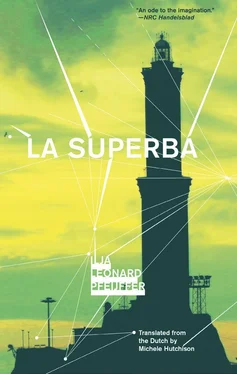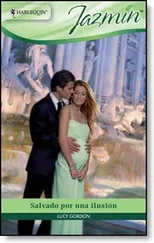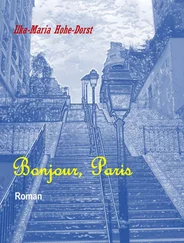11.
Religion is the opiate of the masses. Although Italy has flirted more often and more intimately with Marxism than most other Western European countries, it is one of the most drugged up countries I’ve ever seen. The Holy See actively gets involved in politics. The pronouncements of the Holy Father are even widely reported in progressive and left-wing newspapers. Not a week goes by without a public debate that is only a debate in that the Vatican has regurgitated one of its anachronistic opinions in a press release. There are few politicians who have the courage to commit electoral kamikaze by distancing themselves from the dictates of the Holy Mother-Church or casting doubt on the authority of the old right-winger who believes himself Christ’s terrestrial locum.
Genoa is a civilized, northern, and even explicitly left-wing city, where money is earned, where people can read and write, and where all the old people go to church. Or they take communion at home if they live on the seventh floor, with their fluid retention and their walker and the lift’s out of order again. The tabloids scream outrage. In Genoa, a salesman’s healthy skepticism is the norm, just as the pleasant shadow in the alleyways doesn’t evaporate under any amount of sun. Jesus said that Peter wanted to build his church on a rock. Peter’s church in Genoa is on Piazza Banchi and it is built on shops. The foundations of trade still lie under the church’s foundations. But even here, the mayor only has to come up with the idea of organizing a Gay Pride parade for the archbishop to put a stop to it the next day.
Being a Catholic doesn’t have to be a conscious choice, not like the existential struggles in Dutch Protestantism that go with being doubly, triply, quadruply Reformed or Restored Reformed. In the fatherland, conversion to Catholicism is for men of my profession worthy of a press release, guaranteed fodder for an endless series of discussion nights in community centers. In Italy, it’s something you’re born into, just like being born a supporter of Genoa or Sampdoria, and just as you’re born someone who eats trofie al pesto and not egg foo young with noodles. God isn’t someone you search for on a hopeless path with your hands cramped into a begging bowl, but someone like the coach of a football team or the chef in a restaurant: he’ll be there, and no doubt he’ll do his best, because that’s how it’s always been. So you get baptized and you marry in a church, not because you particularly want that, but because it makes Granny happy and because that’s the way it’s always been. Catholicism is the default, the standard setting, and too many complicated downloads and difficult processes are needed to deviate from it. Most people won’t go to all that trouble.
But this wasn’t what I intended to talk about at all. Religion is a bit of a woman’s thing after all. The men in Italy celebrate their own holy high mass every Sunday at three o’clock on the dot. Since time immemorial the year has unfolded around the cycle of friendly duels and preliminary rounds that lead to the championship and the final position. The religion is called Serie A. Mass is each team’s weekly match. At three o’clock on Sunday afternoons, millions of Italian men sit in their regular parish to be flagellated for ninety minutes by the live coverage on Skynet or some other subscription channel. Sampdoria’s church is the Doge Café on Piazza Matteotti; Genoa’s church is Capitan Baliano, diagonally opposite. At halftime during the service, everyone smokes a fraternal cigarette together on the same square before returning to their own temple at exactly four o’clock for the second half and another forty-five minutes of suffering, hell, and damnation.
Nobody enjoys it, as befits a religion. I’ve watched a football match in a bar a few times back home. You have to drink a lot of beer and do the cancan together, and by the second half getting beer down each other’s throats becomes more important than watching the match. In Italy, on the other hand, it’s a deadly serious matter. The men drink coffee and swear.
There isn’t a single Italian male who doesn’t know about food. He can’t cook, his wife does that, but he knows better. It’s his job to deliver negative comments about each course in an indignant manner. And there isn’t a single Italian male who doesn’t know about football. He’s incapable of sprinting fifty meters, but he knows better. Each Sunday it’s his job to give an indignant and scornful commentary of every move made by the top athletes in the stadium.
But Italians don’t know a thing about football. They don’t understand it and they don’t even like it. Every time a player loses possession it’s the referee’s fault for not spotting a foul. Each goal conceded is proof of the scandalous inferiority and the appalling ignorance of the opponent who has gone and gotten it into his thick skull to score against their team. They cheer if a player on their team brings an adversary down with a violent tackle and jeer when the referee penalizes this action. And, in general, even with the best will in the world, no one can understand how, these days, the best-paid top players constantly make the most basic fuck-ups. The game is mostly unwatchable, because when Italian clubs compete with each other, they never take a single risk, and their lineups only have half a striker.
It’s the same every Sunday. No one takes any pleasure in it. But they wouldn’t miss it for the world. It’s ritual. The week exists by the grace of Sunday afternoons. It wouldn’t surprise me if the same match had different results in different parts of Italy. On the Genoese subscription channels, Genoa beat Palermo 4–0, after which an orgy of pretty things you can buy if you’re happy explodes onto the screen. Palermo probably won the same match 4–0 on the Sicilian subscription channels.
Like every religion, Serie A has a gospel. But it’s much better than those four books in rotten Greek the Vatican’s had to make do with for centuries. It’s printed on pink paper and appears daily with new messages of salvation every time: the Gazzetta della Sport makes it possible to lose yourself in fantasies about Sunday afternoon all week long, with retrospectives that are updated daily, prognoses, statistics, and charts. You don’t need any other newspaper if you want to be an Italian among the Italians. Tutto il rosa della vita is its slogan — everything pink in life. The world’s fucked, hundreds of thousands of poor bastards are landing on Lampedusa, the government has declared a state of emergency, there are soldiers in the streets, and people are dying of poverty, but if you read the Gazzetta dello Sport , none of that has to bother you. There, it’s just about the things that are really important, like the percentage of risky passes from the left wing in comparison to the 1956–57 season.
Italy lives in its imagination. The opium of its people is pink.
12.
I often thought back to my short and confusing relationship with the leg, or rather with the girl I’d fantasized onto it. I was ashamed. But I had to get over that. In a certain way, it had been perfect love. Because I’d dreamed her up myself, she was the woman of my dreams. And yet she was concrete, material and physical enough to have me believe that I wasn’t dreaming. I could actually touch her, stroke her, feel her, and she moved, sighed, and groaned exactly as I imagined in my loveliest fantasies.
The problem with complete women is that they can interfere with your fantasies. There’s a good amount of body to grope, but in fact you do exactly the same thing as when there’s only a single leg available to you. You quench yourself with her skin, while her melting thoughts become your thoughts. You moan sighs into her mouth. You create an image of her and expect her to live up to it. The more she manages to match your unspoken fantasy, the better she is.
Читать дальше












